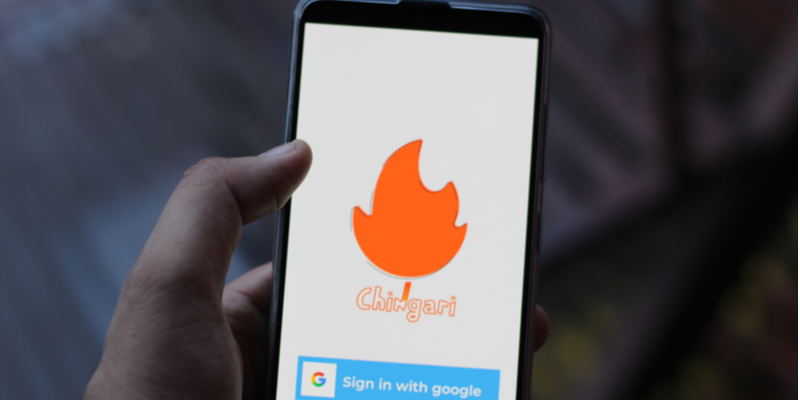Local Alike, SOLS 24/7 and TinkerTank are DBS-NUS-Social Venture Challenge semi-finalists
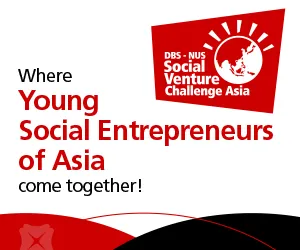
This article is part of Young Entrepreneurs of the DBS-NUS Social Venture Challenge SeriesDBS-NUS Social Venture Challenge Asia, a pan Asia competition for social enterprises aimed at identifying and supporting new social ventures that have the potential to generate scalable and sustainable social impact, announced its 12 shortlisted social ventures from over 400 applications received.
Three social ventures that made it to the semi-finals are Local Alike, SOLS 24/7 and TinkerTank. Local Alike is working for local community development in Thailand through its community-based tourism booking platform, SOLS 24/7 is working toward providing holistic education in employment and leadership & character skill to underprivileged communities in Cambodia, and TinkerTank develops low-cost and high quality tools for bop workers in cottage industries in India.
Here’s more about these social ventures:
Local Alike
Local Alike is a community-based tourism booking platform that connects hosts from local communities to global travellers. It works with local people in developing and supporting local homestays, local tour guides, and unique activities. It aims to make sustainable tourism a great experience for travellers and a beneficial activity for local people in terms of income generation, economic opportunities, preservation of local cultures and traditions, natural conservation and increased cross-cultural understanding.
According to the statistic of the International Tourism Society in 2013, 20% of tourists who visited Thailand focussed on sustainable tourism. Local Alike aims to seize this opportunity and at the same time use sustainable tourism as a community development tool.
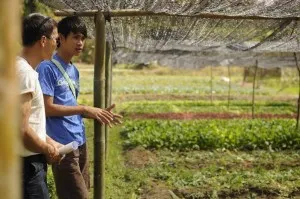
Pai Somsak Boonkam, Founder and CEO of Local Alike, says, “We are not only creating solutions for members of the local communities but also for tourists who are interested in sustainable and economic tourism. Homestay providers and local guides will be able to generate income through offering their services. At the same time, other members of communities associated with the project will also be able to generate income through auxiliary services i.e. meals, transport and handicrafts, etc.”
So far, they have worked with 10 communities in Thailand with an average of 150 people per village benefiting directly and/or indirectly from the project. Apart from employment and income generation, they plan to co-own community development funds, using part of profits from Local Alike and communities’ to solve existing issues related to environment, health and education etc.
“The boot camp at DBS-NUS-Social Venture Challenge equipped us with tools that guide us to strategically look back on our model and to improve upon it. It is great that the program linked us to people who are almost at the same pace and stage of business. We have learned a lot from each other. Our mentors and guest speakers guided us on what other aspects of impact assessment we should look at and what are worth doing,” says Pai.
SOLS 24/7
SOLS Cambodia is trying to solve the socio-economic problem of poverty in Cambodia by providing holistic education in leadership and character skills. Despite a 6% economic growth from 2010-2012, Cambodia is still one of the poorest countries in Asia. About four million Cambodians are living under USD$1.25 per day. They have limited access to good quality education, healthcare, information technology and are more vulnerable to social problems.
SOLS Cambodia has a 1.5 years boarding program where students study employment skills such as English, Computer, Basic Maths, Administration, Management etc. Students learn business skills through their ‘Economic Education Program’ where they acquire practical business skills by running their five co-ops.
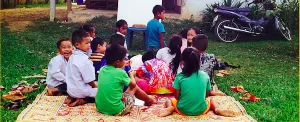
With the belief that education is the key tool to helping the underprivileged come out from the cycle of poverty, SOLS had to find a way to impart practical and relevant education to underprivileged communities, make it accessible to them in a way they can see the value of education.SOLS Cambodia team is quite diverse in its backgrounds and ethnicity, but is united by their commitment to bring ‘Education to All’, especially to underprivileged individuals and communities.
They have researched and awarded, ‘Science of Language’, English learning programs, and ‘SOLS Smart’, personal development programs. The organization is the only institution which provides holistic education to poor Cambodians. SOLS was started as a non-profit organization in January 2000. It has both full-time boarding and part-time programs and currently has 65 educational centres, located nationwide.
Nur Farshah Rahmat, one of the team members at SOLS Cambodia, says, “We are developing our social enterprise arm and we require more knowledge and experience to build it. We realised that by being part of the DBS-NUS SVC, we would be able to learn all the different aspects of what is needed to run a successful social enterprise. We have learned a lot during the bootcamp. Furthermore, being involved in the DBS-NUS SVC allowed us to network with other social enterprises, industry experts, investors and many more people with whom exchange of ideas and potential co-operations can happen.”
Tinker Tank
TinkerTank develops low-cost and high quality tools/machines through which women workers involved in cottage-based industries or informal sector at large can carry out their livelihood activities easily, efficiently and productively. It is co-founded by Abhishek Rathi, Adnan Ansari and Keshav G and the venture is incubated at IIT Gandhinagar Incubation Center. Though they started working on the idea in July 2013, they have officially started TinkerTank in January 2014.
Abhishek shares that around 35-40% of the export products in India come from its cottage industry which employs workers from the bottom of the pyramid. Around 118 million such informal workers are present in India. Due to the long hours of manual work, these workers face health issues such as body pain, back pain, bruises and other health problems which get chronic due to regular long hours of work. These problems arise because there is nil or inappropriate tools and machines available for these workers.
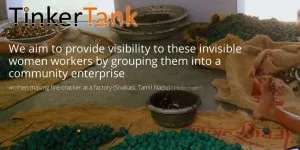
TinkerTank’s first product is Doopica – a low-cost incense-stick machine to make incense sticks instead of making them manually and suffering subsequent exploitation and health issues. TinkerTank has bamboo-stick making machine, fire-cracker making machine and rice-sapling planting machine in the product pipeline.
Abhishek says, “We are mobilizing women workers to come together and form a community enterprise. With our affordable technology they can produce high quality products, sell them directly to the market bypassing the middle men or MSMEs structure and move up in the value chain.”
Speaking about being shortlisted as a semi-finalist at DBS-NUS Social Venture Challenge Asia, Abhishek says, “Being shortlisted as semi-finalists affirms that our business idea is strong and meaningful. It boosts the morale of the team, reminds us that we are on the right track, and pushes us to go to the next level. Mini-success such as this keeps the spirit high in an early stage startup.”
The top six teams qualifying for the finals of DBS-NUS Social Venture Challenge will be announced on 6th May, 2014.
Stay tuned to know about other semi-finalists of the challenge!






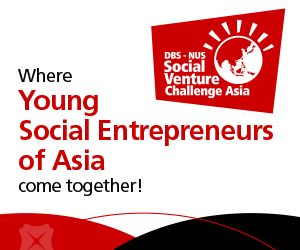

![[Funding alert] Alternative credit platform BlackSoil raises Rs 32Cr via NCDs](https://images.yourstory.com/cs/2/3fb20ae02dc911e9af58c17e6cc3d915/Ankurimage-1600856808384.jpeg)
